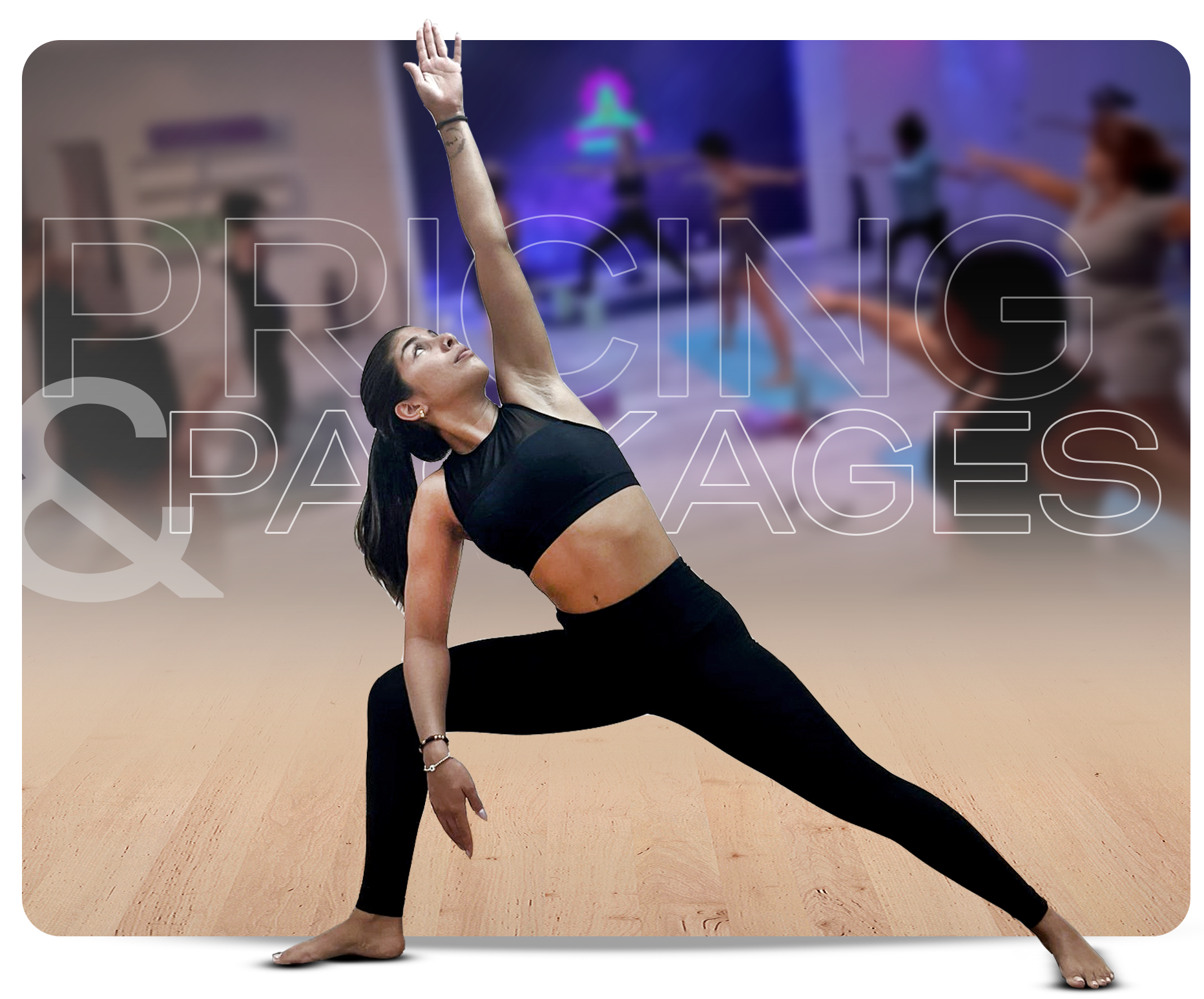WEEK 7.1 (FEBRUARY 12-18) – Not all who wander are lost.
“Not all who wander are lost”
“The secret to having it all is knowing you already do.” – Unknown.
“While goals serve their purpose, in our modern lives, we often become overly fixated on achieving them. We create to-do lists, diligently ticking off tasks, all the while missing the essence of the journey itself. Happiness lies not solely in reaching the destination, but in the steps we take along the way.
In the teachings of the Dao, Lao Tzu wisely said, ‘A good traveler has no fixed plans, and is not intent on arriving.’ This reminds us to embrace the unfolding path, rather than clinging to rigid plans
Interestingly, it’s often the most challenging segments of our journey that offer the most breathtaking views. Amelia Earhart aptly stated, ‘Adventure is worthwhile in itself.’ So, even when we feel adrift, unable to discern our exact path, remember that paths reveal themselves as we walk. Paths are made by walking and not just
Wandering doesn’t equate to being lost; it signifies openness to discovery and the beauty of the unknown.” – David Scott
“Be as simple as you can be; you will be astonished to see how uncomplicated and happy your life can become.” – Unknown
“There is no path to happiness; happiness is the path.” – Gautama Buddha
“Nothing will make you happy until you choose to be happy. No person will make you happy unless you decide to be happy. Your happiness will not come to you. It can only come from you.” – Ralph Marston
“Yoga is the journey of the self, through the self, to the self.” — The Bhagavad Gita
“To the degree that we look clearly and compassionately at ourselves, we feel confident and fearless about looking into someone else’s eyes.” — Pema Chödrön
“Yoga is a tool that we use to move into stillness, experiencing the truth of who we are.” — David Scott
The Story of The Lotus Seeker
In a small village nestled amidst the mist-covered mountains, there lived a young monk named Kavi. Kavi was known for his gentle spirit and unwavering devotion to the teachings of the Buddha. His days were spent in quiet meditation, seeking answers to life’s profound questions.
One crisp morning, Kavi decided to embark on a pilgrimage. He yearned to visit the sacred temple atop the highest peak—the place where the ancient scriptures whispered secrets of enlightenment. The journey was arduous, but Kavi’s heart burned with purpose.
As he ascended the rugged trails, Kavi encountered fellow travelers. Some were seasoned pilgrims, their faces etched with wisdom. Others were wanderers—lost souls seeking solace. Kavi listened to their stories, shared his meager provisions, and offered kind words. He understood that each traveler had their own path, their own quest for meaning.
One day, Kavi met an old woman named Sita. Her eyes held a lifetime of sorrows, and her steps faltered. She clutched a tattered map, its ink faded by time. “Young monk,” she said, “I seek the Lotus Lake—a place said to hold healing waters. Can you guide me?”
Kavi studied the map. Its lines zigzagged, leading nowhere in particular. “Sita,” he said, “the true path lies within. The Lotus Lake is not a distant oasis; it resides in your heart. Seek stillness, and you shall find it.”
Sita frowned. “But the map…”
Kavi smiled. “Not all who wander are lost. Sometimes, the wandering itself is the pilgrimage. Let go of the map, and let your heart guide you.”
Sita hesitated, then folded the map and placed it in her worn satchel. Together, they continued their journey. Kavi shared stories of compassion, of the lotus blooming from murky waters. Sita listened, her steps growing lighter.
At last, they reached the temple. Its golden spires touched the sky, and the air hummed with ancient chants. Kavi bowed before the altar, feeling the presence of countless seekers who had come before him. Sita stood beside him, tears streaming down her weathered cheeks.
“Is this the Lotus Lake?” Sita whispered.
Kavi shook his head. “No, my dear friend. The temple is but a reflection. The true Lotus Lake lies within, where compassion meets wisdom. It is the stillness that blooms even amidst chaos.”
Sita closed her eyes. In that sacred space, she found solace. The lotus blossomed within her—a fragile yet resilient flower. She no longer needed the map; her heart had become the compass.
As Kavi descended the mountain, he realized that enlightenment wasn’t confined to lofty peaks. It was in the kindness he showed, the stories he heard, and the shared laughter. Not all who wandered were lost; they were simply on different paths, seeking their own lotus within.
And so, Kavi continued to wander, knowing that the journey itself was the destination. For in the wandering, he discovered the truth: “The secret to having it all is knowing you already do.”
May your own journey be filled with wisdom, compassion, and the blossoming of your inner lotus
Since 1938, the Harvard Study of Adult Development has been investigating what makes people happy and flourish. After starting with 724 participants—the study incorporated the spouses of the original men and, more recently, more than 1,300 descendants of the initial group.
As the study’s director (Bob) and associate director (Marc), we’ve been able to watch participants fall in and out of relationships, find success and failure at their jobs, become mothers and fathers.
It’s the longest in-depth longitudinal study on human life ever done, and it’s brought us to a simple and profound conclusion: Good relationships lead to health and happiness. The trick is that those relationships must be nurtured.
Social Fitness is working on strengthening our relationships.
attention
“Attention is the most basic form of love.”- Zen Proverb
The most precious thing we can give to somebody else is our undivided attention, but it’s much harder to give that these days,
Expressing Vulnerability
Don’t be afraid to ask for help. One of the harder things for some people to learn is how to give help, and—even harder for others as they grow older—how to receive help
Less screen time and more face time
Instead of making people feel connected, social alienation is occurring, provoking feelings of isolation and loneliness. Technology can make people feel more dependent on social connections relatively then depending on real life connections. Study found “Children lose empathy being online too much. We’ve seen kids like this that don’t develop those sympathetic and empathetic skills they need.”
On Feb 11th 1990, Nelson Mandela was released from a South African Prison after 27 years.
Nelson Mandela, (born July 18, 1918, Mvezo, South Africa—died December 5, 2013, Johannesburg), Black nationalist and the first Black president of South Africa (1994–99). His negotiations in the early 1990s with South African Pres. F.W. de Klerk helped end the country’s apartheid system of racial segregation and ushered in a peaceful transition to majority rule. Mandela and de Klerk were jointly awarded the Nobel Prize for Peace in 1993 for their efforts.
Definition – What does Klesha mean?
In Hinduism and Buddhism, a klesha is a negative mental state that clouds the mind causing suffering and the conditions for suffering to arise. Klesha means “poison” in Sanskrit. Kleshas also refer to the obstacles that prevent a person from reaching a state of enlightenment and freedom from samsara.
Kleśa (sanskrit क्लेश, also klesha ) is a term from Indian philosophy and yoga, meaning a “poison”. The third śloka of the second chapter of Patañjali’s Yogasūtra explicitly identifies Five Poisons (Sanskrit: pañcakleśā):
The five kleshas mentioned by Patanjali are:
Avidya (delusion or ignorance) is the first of the kleshas because it is the basis for the others. By destroying avidya, the other kleshas are no longer an obstacle. Avidya obscures the higher Self by firmly establishing negative habits and preventing change.
Asmita (egoism) is the attachment to ego and the ego’s sense of reality. It is mistaking the physical, emotional and mental aspects of the mind-body for the true Self.
Raga (attachment) is the desire for material objects, relationships, status, power or other unevolveddesires.
Dvesha (repulsion) is aversion to unpleasant things, people and experiences.
Abhinivesha (will to live) is the fear of death and desire to live, even if life is filled with misery.
Sutra 2.2 introduces the subject very clearly: “The goal of Yoga is not to obtain something that is lacking: it is the realization of an already present reality. The yoga practice aims to remove the obstacles that obstruct the experience of Samadhi, or the state of complete absorption”.
In class tonight imagine that the body is the bow, asana is the arrow, and the soul is the target.
The Two Travelers and the Farmer
A traveler came upon an old farmer hoeing in his field beside the road. Eager to rest his feet, the wanderer hailed the countryman, who seemed happy enough to straighten his back and talk for a moment.
“What sort of people live in the next town?” asked the stranger.
“What were the people like where you’ve come from?” replied the farmer, answering the question with another question.
“They were a bad lot. Troublemakers all, and lazy too. The most selfish people in the world, and not a one of them to be trusted. I’m happy to be leaving the scoundrels.”
“Is that so?” replied the old farmer. “Well, I’m afraid that you’ll find the same sort in the next town.
Disappointed, the traveler trudged on his way, and the farmer returned to his work.
Some time later another stranger, coming from the same direction, hailed the farmer, and they stopped to talk. “What sort of people live in the next town?” he asked.
“What were the people like where you’ve come from?” replied the farmer once again.
“They were the best people in the world. Hard working, honest, and friendly. I’m sorry to be leaving them.”
“Fear not,” said the farmer. “You’ll find the same sort in the next town.”
“As I walked out the door toward the gate that would lead to my freedom, I knew if I didn’t leave my bitterness and hatred behind, I’d still be in prison.” – Nelson Mandela
“Do not judge me by my successes, judge me by how many times I fell down and got back up again.” – Nelson Mandela
“The greatest danger for most of us is not that our aim is too high and we miss it, but that it is too low and we reach it.” – Michaelangelo
“Our deepest fear is not that we are inadequate. Our deepest fear is that we are powerful beyond measure.” – Nelson Mandela
“I learned that courage was not the absence of fear, but the triumph over it. The brave man is not he who does not feel afraid, but he who conquers that fear.” – Nelson Mandela
“I never lose. I either win or learn.” – Nelson Mandela
“A winner is a dreamer who never gives up.” – Nelson Mandela
“Education is the most powerful weapon which you can use to change the world.” – Nelson Mandela
“No one is born hating another person because of the color of his skin, or his background, or his religion. People must learn to hate, and if they can learn to hate, they can be taught to love, for love comes more naturally to the human heart than its opposite.” – Nelson Mandela
“Resentment is like drinking poison and then hoping it will kill your enemies.” – Nelson Mandela
“May your choices reflect your hopes, and not your fears.” – Nelson Mandela
“The greatest glory in living is not in falling, but in rising every time we fall.” – Nelson Mandela
“I am the master of my fate: I am the captain of my soul.” – Nelson Mandela
“Everything you’ve ever wanted is on the other side of fear.” — George Addair
“If you believe it will work out, you’ll see opportunities. If you believe it won’t, you will see obstacles.” – Wayne Dyer
“The truth is that the way other people see us isn’t about us—it’s about them and their own struggles, insecurities, and limitations. You don’t have to allow their judgment to become your truth.” ~Daniell Koepke
“Your mind is a powerful engine. When you fill it with positive thoughts, it will produce a powerful and positive life.” – David Scott
“Courage is one step ahead of fear.”
“Strength does not come from physical capacity. It comes from an indomitable will.” – Mahatma Gandhi
“The past no longer defines me. I am not my scars. I am not my failures. I am not misfortunes. I am not my mistakes. I am the wise soul, living in this imperfect body experience and growing wiser with each stumble that I overcome.” David Scott
“The only person you are destined to become is the person you decide to be.” —Ralph Waldo Emerson
“When times are good, be grateful, and when times are tough, be graceful.” – Dustin Poirier.
“If you don’t like something, change it. If you can’t change it, change your attitude.” – Maya Angelou
“Limitations live only in our minds. But if we use our imaginations, our possibilities become limitless.” —Jamie Paolinetti
“Twenty years from now you will be more disappointed by the things you didn’t do than by the things you did.” – Mark Twain
“Your time is limited, so don’t waste it living someone else’s life.” – Steve Jobs
“Be so happy that when others look at you they become happy too.” – Unknown
“The Secret of Change Is to Focus All of Your Energy, Not on Fighting the Old, But on Building the New.” – Socrates
“You will never find time for anything. If you want time you must make it.” – Charles Buxton “If you dont have time for the things that matter, stop wasting time on the things that dont.”
“God grant me the serenity to accept the things I cannot change, the courage to change the things I can, and the wisdom to know the difference.” – Reinhold Niebuhr
“Forgive yourself for not knowing what you didn’t know before you lived through it. Honor your path. Trust your journey. Learn, grow, evolve, become.” ~Creig Crippen
Today’s tears water tomorrow’s gardens.” – Matshona Dhliwayo.
“Take care of yourself so you’re strong and healthy for the important people in your life. It’s not selfish. It’s self-nurturing, it’s necessary, and you’re allowed.” – Farnoosh Brock
“Those who wish to sing, always find a song.” – Swedish proverb.
The hardness of a diamond is part of its usefulness, but its true value is in the light that shines through it.
“When you meet obstacles with gratitude, your perception starts to shift, resistance loses its power, and grace finds a home within you.” – Oprah Winfrey.
When you exhale, it represents the service you are giving to the world. When you inhale, you are taking the strength from God.


